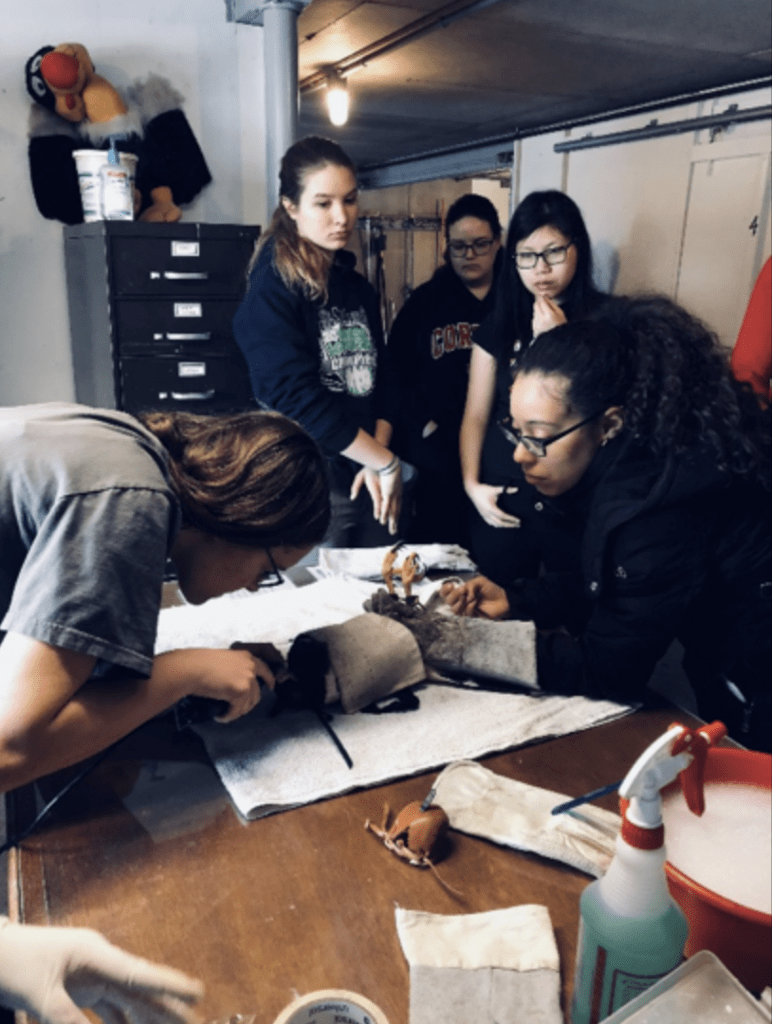The Cornell Raptor Program is excited to announce the addition of a new course available to all Cornell undergraduates, ANSC 4940 Lecture 2: Introduction to Captive Raptor Husbandry. This course will be taught beginning Fall 2021 by CRP’s director, Dr. Heather Huson. New students interested in joining CRP should sign up for the class. If you have a conflict but are interested in joining the program, please contact Dr. Huson (net ID: hjh3).
This course will provide students with an introduction to captive raptor management. The course structure will include a weekly classroom lecture and hands-on laboratory training session utilizing the resident birds of prey and facilities of the Cornell Raptor Program. Topics of instruction will include natural history and adaptations of various bird of prey species, safe handling of captive raptors, nutritional requirements, health care, behavior and training, and the ethics of maintaining captive raptors. This class is recommended for freshman, sophomore students or individuals with no previous experience with the Cornell Raptor Program. Course will include animal chores.
—
The Cornell Raptor Program is engaged in an undergraduate volunteer program which provides education on the care and management of captive raptors and broader information on the natural history and conservation of birds of prey. Our non-releasable resident raptors provide a unique hands-on opportunity for student learning.
The volunteer program allows students the flexibility of determining their level of engagement in time commitment and activities. Everyone assists in the routine health care and feeding of the raptors and aviary cleaning and maintenance during our Saturday workdays and learns safe and proper handling of raptors. Students share responsibility with the program director in their progression through the program based on their own comfort level coupled with their increased experience level and commitment. They have options to participate in public education programs and to become involved with undergraduate research. Select students demonstrating leadership, initiative, commitment, and excellence in animal handling are selected to serve as student supervisors and education coordinators.

